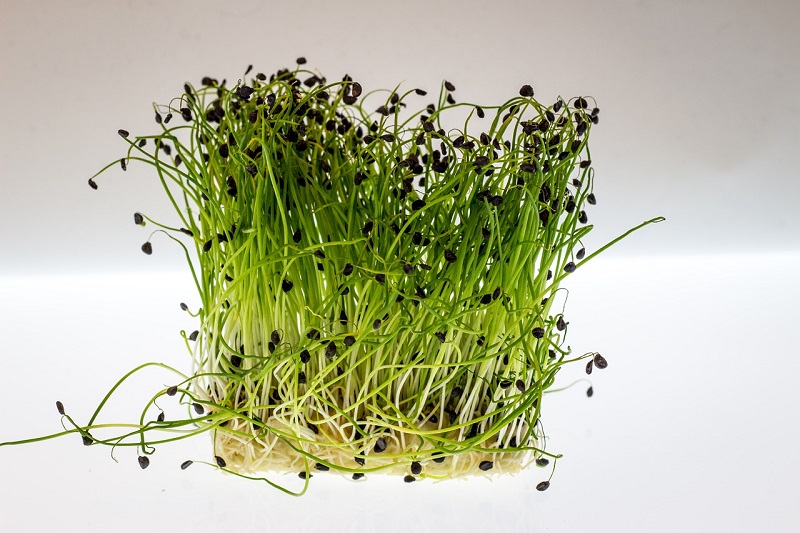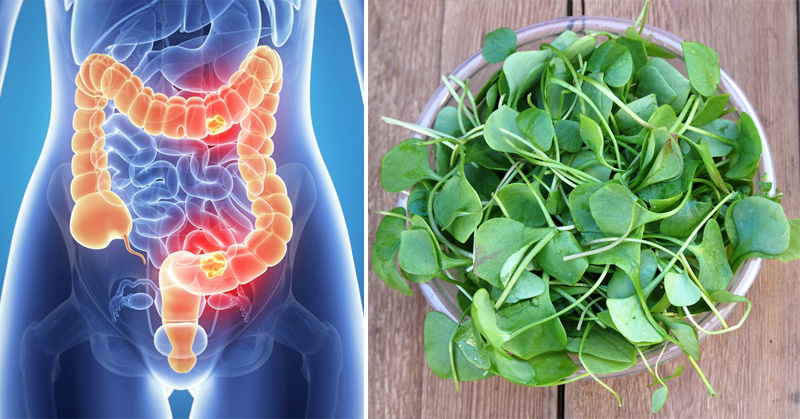Watercress is often referred to as a powerhouse vegetable. As a close cousin to kale, watercress is packed with beneficial nutrients. It provides the body with a healthy dose of Vitamin K, Vitamin C, Vitamin A, calcium and manganese. Benefits of watercress include the ability to fight inflammation, lower blood pressure levels, strengthen the bones and teeth and even reduce the risk of colon cancer.
Benefits of Watercress
1. May Help Reduce Colon Cancer Risk
Studies suggest that the benefits of watercress may include the ability to reduce the risk of colon cancer. Like other cruciferous vegetables, watercress is listed among the top cancer-fighting foods. It provides the body with vitamins, minerals, antioxidants and other important enzymes that help strengthen the immune system and prevent cancerous cell growth. (1)
2. Provides the Body With Omega-3 Fatty Acids
Benefits of watercress include the ability to provide the body with healthy omega-3 fatty acids. Omega-3 foods help fight inflammation, boost brain health, improve heart health and more. Studies have shown that watercress contains higher amounts of omega-3’s than most other vegetables.
3. Reduces Inflammation
Benefits of watercress include the ability to fight inflammation. Thanks to the omega-3’s and other nutrients watercress contains, it works as a natural anti-inflammatory food. Research has shown that the benefits of watercress include the ability to reduce swollen breathing passages and treat coughs, bronchitis and the flu.
4. Lowers Blood Pressure
Benefits of watercress include the ability to naturally lower blood pressure. Watercress contains calcium, magnesium and potassium, which help release sodium from the body and reduce high blood pressure levels. Watercress, along with other nutrient-dense fruits and vegetables, can help naturally maintain healthy blood pressure levels. (2)

5. Supports Healthy Skin, Hair and Nails
Benefits of watercress include the ability the strengthen hair, skin and nails. The phytonutrients in watercress play an important role in promoting a clear complexion, healthy hair and strong nails. Benefits of watercress include the ability to provide the body with calcium, magnesium and potassium, along with vitamins A, C, E, K and B vitamins. (3)
6. Strengthens Bones and Teeth
Benefits of watercress include stronger bones and teeth. As a calcium-rich food, watercress can help prevent weak bones that lead to fractures and osteoporosis. A calcium deficiency can cause a loss in bone density. By providing the body with calcium, Vitamin A, Vitamin C and Vitamin K, watercress can help maintain strong and healthy bones.
Watercress vs. Kale
When it comes to nutrition, watercress and kale score higher than many other vegetables. Technically speaking, watercress is more nutrient-dense than kale, but both vegetables provide the body with many health benefits.
Watercress
- Higher in antioxidants than kale, which can help prevent DNA damage
- Lower in calories than kale
- Contains Vitamin K which is good for blood clotting, Vitamin A which improves immune function and vision, and Vitamin C which forms collagen and helps to heal wounds
- High in calcium, which promotes healthy muscle and nerve function along with strong bones and teeth
Kale
- Higher Vitamin K content than watercress
- Also contains Vitamin A and Vitamin C
- Contains folate, which helps create new cells and is vital for pregnant women to help prevent neural tube birth defects
- Rich in iron, which helps form red blood cells that transport oxygen throughout the body
- Contains magnesium, which plays a role in maintaining a regular heartbeat and regulating blood sugar levels


